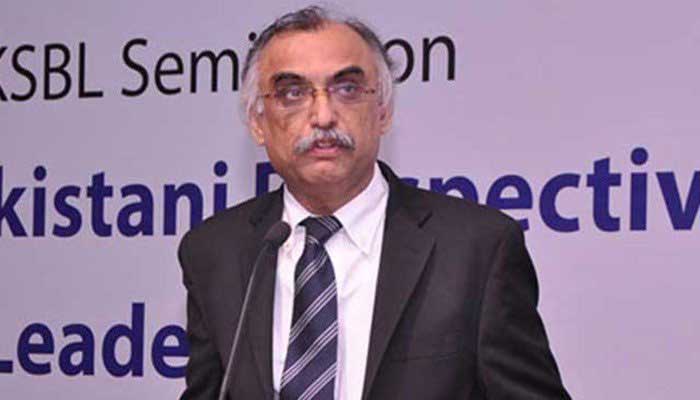Former FBR chief Shabbar Zaidi suggests demonetizing Rs5,000 note from July 2021
Shabbar Zaidi believes that the move will improve the economy and ensure that banking prospers
- Shabbar Zaidi believes government should demonetize the Rs5,000 note and announce a demonetization plan two months before making the move
- Zaidi believes that the move will improve documentation of the economy and ensure that banking prospers
- Former FBR chairman argues that demonetisation will also make bribery difficult
Former head of the Federal Board of Revenue and respected accountant Syed Shabbar Zaidi has suggested that the government should go for demonetization of the Rs5,000 note from July 2021.
"5000 Rupee Notes. Demonetise from July 1, 2021. Announce two months earlier" said Zaidi in a tweet on Friday.
The former FBR chief said that the government should announce the plan in advance for a smooth "transition" period.
Zaidi believes that the opponents of demonetization have "no idea about abuse" and alleged that vested interests prevent a consideration of its benefits.
The former tax czar believes that the move will improve the economy and ensure that banking prospers.
He also said that by demonetising the denomination, bribery will become difficult.
He also suggested that those hoarding gold in lockers should have to inform the government if bullion is being held and the government should also monitor bullion trading.
What is demonetisation?
According to website Investopedia, demonetisation is the act of stripping a currency unit of its status as legal tender.
"It occurs whenever there is a change of national currency: The current form or forms of money is pulled from circulation and retired, often to be replaced with new notes or coins. Sometimes, a country completely replaces the old currency with new currency," explains the website.
In this case, it simply means that the Rs5,000 note should cease to exist and hold value.
However, the move is seen as a drastic intervention as it directly affects the "medium of exchange used in all economic transactions".
But economists believe that the move can help stabilise a country's existing problems but also warn that if the move is taken suddenly of drastically then it can also lead to chaos.
The most recent country to carry our demonetization was India. Demonetization there was done by the Narendra Modi led government in 2016.
The BJP-led government had ordered the pullout of 500 and 1,000 Indian rupee notes from circulation to tackle widespread corruption and tax evasion.
New Delhi ordered that while people could exchange their old notes for new bills at banks or post offices until the end of the year, or deposit them in their accounts, they would no longer be legal tender from midnight on November 8, 2016.
"To break the grip of corruption and black money, we have decided that the 500 and 1,000-rupee currency notes presently in use will no longer be legal tender from midnight that is 8 November, 2016," Modi had said in a televised address to the nation.
-
Security forces gun down 30 terrorists in multiple IBOs in KP: ISPR
-
MQM-P calls for new province in Sindh
-
US report validates Pakistan military edge over India: PM
-
Banned TTP poses serious threat to Pakistan security: UNSC panel
-
CM Afridi clarifies remarks on by-poll after ECP requests army deployment
-
Dubai sees 3.2m Pakistani passengers in 2025 as airport sets new milestone
-
Security forces kill 23 Indian proxy terrorists in KP's Kurram
-
Pakistan to construct island to boost oil exploration: report












